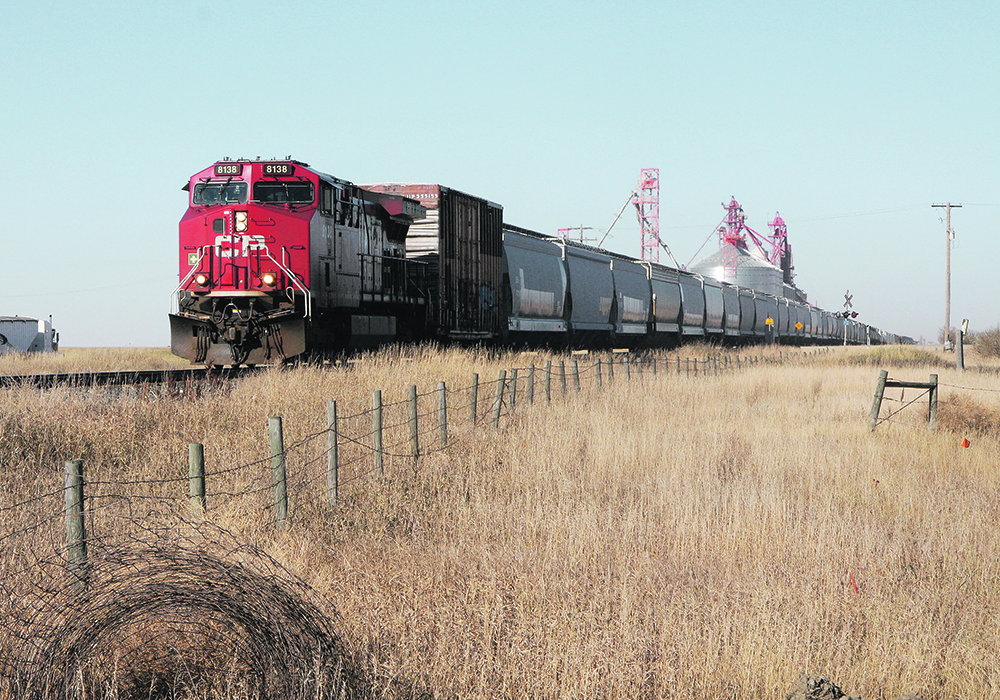Prairie grain shippers insist extended interswitching should be made permanent so all Prairie regions are accommodated
REGINA — Grain companies last week added their voice to the call for extended interswitching.
Wade Sobkowich, executive director of the Western Grain Elevator Association, said the practice is an example of low-hanging fruit that would provide rail rate and service competition for shippers.
He said it’s one of the only tools shippers have to force competition between Canada’s two major railways.
Read Also

U.S. bill could keep out Canadian truckers
The Protecting America’s Roads Act, which was tabled in the U.S. House of Representatives at the beginning of October, would “rid the country of illegal immigrant commercial truck drivers and ineligible foreign nationals.”
Like other witnesses who recently appeared before the House of Commons agriculture committee, Sobkowich said the extended interswitching program in place from 2014-17 was good for shippers even if the railways were opposed.
“Time would reveal that Class 1 railways’ profitability in that four-year period, based on their operating ratios, was the best it had been over the previous decade,” he said.
“We know the railways are very active right now in advocating against extending or renewing extended interswitching.”
A pilot project using a 160-kilometre radius has been underway since September 2023 but is only in place for 18 months. Grain shippers have asked for that to be extended by 30 months with a view to permanency and expanded to 500 km to reach the Peace region and parts of northeastern Saskatchewan.
Terry Youzwa, a Saskatchewan farmer and chair of Pulse Canada, said 94 per cent of farmers are beholden to a single carrier. Increased competition from extended interswitching would benefit many.
“Farmers like me bear the cost of a supply chain that isn’t performing and you can see it in our yard — higher levels of inventory, increased storage costs and additional charges, wider basises and lower prices. That’s what an underperforming supply chain means to me,” he said.
Youzwa said a lot of pulses move by container, and the various inefficiencies throughout the system cause delays and increased costs. He said the previous implementation of extended interswitching and the current pilot project show that it works.
“Even when traffic isn’t switched over to another carrier, I understand that extended interswitching is encouraging the originating carrier to do what it can to win the business,” he said.
“They offer the cars and match the rates. That’s competition and we should expect nothing less every day in our rail freight system.”
Sobkowich also said the railways “sharpen their pencils” when it comes to freight rates under extended interswitching.
He said very little grain is actually switched. During the 2014-17 period, less than one per cent of all traffic was interswitched and less than 0.6 per cent of that was grain, he said.
The operational impact is negligible, he said, but it gives shippers the leverage to get more competitive rates.
Legislation would have to be changed to accommodate the request, said Liberal committee member Francis Drouin.
“For six weeks now, nothing has moved in the House,” he said, referring to a Conservative filibuster.
“We have to get back to the business of the House because if we don’t have enough time to legislate interswitching, there will be a gap after March. If we don’t get it through the fall economic statement, then we’re stuck.”
The committee is expected to hear from the railways as it continues to look at issues and opportunities related to agriculture.


















